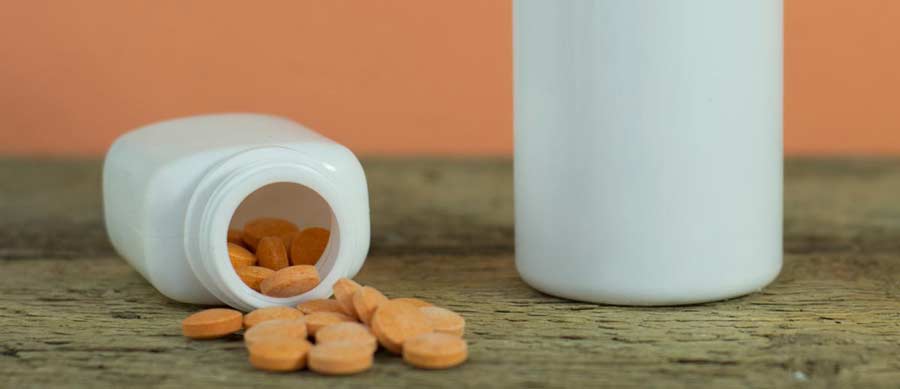Heroin is a highly addictive drug made from morphine. Many people who struggle with prescription opioid abuse will transition to heroin abuse because it is cheaper, provides a stronger high, and is easier to obtain. According to the 2016 National Survey on Drug Use and Health, 948,000 people used heroin in 2016, compared to 669,000 users in 2012.1
Table of contents
As heroin abuse continues to grow among Americans, it remains an extremely dangerous drug. Continued heroin abuse can cause serious medical conditions over time, including collapsed veins, skin infections, lung disease, infection in the lining and valves of the heart, and increased risk for HIV/AIDS and hepatitis.2 The psychological and social consequences are also far-reaching, and heroin abuse often destroys families, ruins careers, and takes lives.
In order to begin healing and gain freedom from heroin addiction, an individual must first complete heroin detox to rid their body of toxins and break their physical dependence on the drug. Although heroin detox alone does little to change long-term heroin abuse, it is an extremely important and vital part of the addiction treatment process.3 To fully address the scope of addiction, any drug detox program should be followed up with long-term drug and alcohol rehab and continued aftercare.
About Medicated Heroin Detox
One of the primary objectives of heroin detox (and drug detox in general) is to manage the uncomfortable physical symptoms of withdrawal. Heroin withdrawal, in particular, can be very uncomfortable and symptoms range from mild to severe pain, diarrhea, nausea, and vomiting. Most individuals also experience extremely strong cravings that make it very difficult not to relapse.
Medications can be a helpful tool to help ease cravings and other uncomfortable physical symptoms during this time. Medication should only be administered by medical professionals who are trained to recognize and treat symptoms of heroin withdrawal. This most often takes place in a medically assisted detox center like Briarwood Detox Center.
According to the National Institute on Drug Abuse (NIDA), medications can be used to safely treat opioid addiction work in the same way the drug does, but are safer and much less likely to produce the same harmful behaviors associated with opioid addiction.4
There are three types of medications that have been developed to treat opioid addiction and withdrawal. They are:
- Agonists: These medications activate the opioid receptors, like heroin and other opioids do.
- Partial agonists: These medications active the opioid receptors but produce a weaker response.
- Antagonists: These medications block the receptors and interfere with the pleasurable effects opioid drugs produce.
Methadone, an agonist, has been used for the last 40 years to treat heroin addiction but methadone itself can also be highly addictive if it is used in any way other than prescribed or in conjunction with other opioids, benzodiazepines, or alcohol. This behavior can lead to additional addiction and drug misuse problems.
While methadone used to be the primary option for people seeking medicated assisted treatment for heroin addiction, another medication called Suboxone has more recently become another common option for treating heroin addiction.
Suboxone in Heroin Addiction Treatment
Suboxone is a combination of the medications buprenorphine and naloxone and studies show that it is very effective in reducing artificial opiate cravings, although it has been used to treat heroin addiction for a shorter amount of time than methadone has.5,6
In some medically assisted heroin detox programs, individuals are given a controlled and tapered dose of Suboxone. This helps gradually wean them off the drug while reducing heroin cravings and the uncomfortable physical symptoms associated with heroin withdrawal.
Since Suboxone is a partial opioid agonist, it activates some opioid receptors but provides a weaker response to the drug than a dose of heroin would. This may also protect a person from potential abuse.
Both Suboxone and methadone may be abused without a prescription or in conjunction with other addictive substances, so they should always be administered by a medical professional and only ever taken as prescribed.
Heroin Detox at Briarwood Detox Center
At Briarwood Detox Center, we provide medically assisted detox for individuals who are addicted to heroin and other addictive substances. Our individualized drug detox programs are designed to address the physical, emotional, and psychological effects of heroin withdrawal while providing the most comfortable and safe withdrawal experience possible.
If you’d like to learn more about our drug detox programs or how Suboxone can help you begin living a life of sobriety, please call (888) 857-0557 to speak to a Briarwood admissions specialist today.
References:
- https://www.samhsa.gov/medication-assisted-treatment/medications-counseling-related-conditions/buprenorphine
- https://www.drugabuse.gov/publications/drugfacts/heroin
- https://www.drugabuse.gov/publications/teaching-packets/understanding-drug-abuse-addiction/section-iii/7-medical-detoxification
- https://www.drugabuse.gov/drug-topics/heroin
- https://www.omicsonline.org/open-access/a-comparison-of-suboxone-and-methadone-in-the-treatment-of-opiateaddiction-2155-6105-1000248.php?aid=64527
- https://www.drugs.com/suboxone.html


